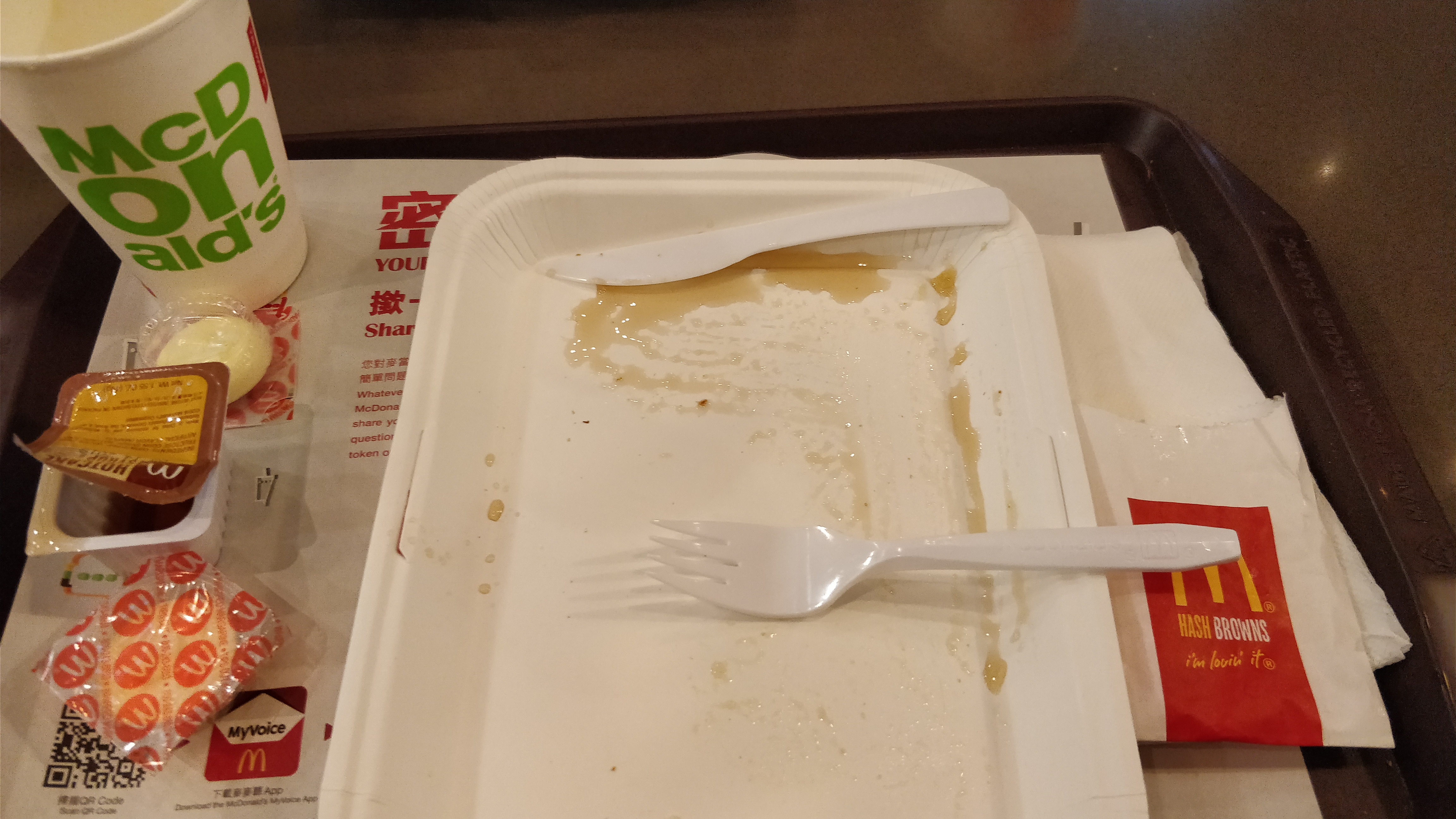The food arrived on a metal tray with a metal cover to keep in the heat. Inside, was a stone pot of rice, mixed vegetables, an egg, and some meat mixed to make mixed rice or stone bibimbap. The side dishes were all on metal or heavy reusable plastic plates or containers. The only thing disposable was the paper wrapping around the metal chopsticks and spoon and the plastic wrapping around the soup. At the end of the meal, all the dishes and cutlery go back on the tray covered then placed outside the door. The delivery person would pick it up later while they were doing other deliveries.
This Korean way of delivery is how it should be with minimal disposable plastic, paper, or metal items. It is not true inHong Kong places where take away and delivery are becoming even more common.
A study done by Greenpeace, released yesterday, showed three of Hong Kong’s biggest restaurant chains, Cafe de Coral, Fairwood, and Maxims give out an average of 14 pieces of plastic per takeaway meal. Combined it is over 100million pieces of single-use plastic for takeaway meals. Additionally, there are 80 million pieces of plastic used for dining in. It is 180million problem from only three restaurant chains. McDonald’s, Hong Kong’s biggest restaurant chain, wasn’t included.
Fast Food places are making small changes, but they are cosmetic at best. Mc Donald’s no longer offers straws on Mondays while others don’t give them unless requested. Delivery apps and websites have added an option for consumers to ‘skip the utensils.’ These measures are a start but do nothing to help. There
The best solution would be getting consumers to pay for waste. It would be a pay per garbage bag system found in a lot of countries and cities around the world. Making consumers pay, for the garbage they throw out, will encourage people to demand reusable packaging and cutlery. It will force restaurants to reform and reduce their waste because of their demands.
The main reason why the Korean delivery system is so environmental is
Delivery Waste in Hong Kong

Published in Hot Takes